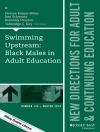This volume provokes conversations and reflections on the most appropriate methodologies to pursue Career Development Learning (CDL) research within the framework of the Sustainable Development Goals (SDG)s. Drawing on studies with Australian students from diverse backgrounds, including low socioeconomic status, regional, rural and remote, with disability, etc., this volume uniquely highlights considerations for contextual and inclusive CDL research which advances multiple SDGs and quality futures across the globe. Although situated in Australian contexts, the case studies have international applicability.
This volume provides support to researchers who intend to investigate the effectiveness of career development strategies which further sustainable development objectives. Specifically, the book highlights the importance of partnership and innovative methods in socially-just research methodologies as well as practical ways that these can be undertaken. It encourages readers toconsider how they might frame their work in relation to the SDGs and create impactful research which furthers the agenda for sustainable development in localised ways.
Daftar Isi
Introduction.- Partnerships and collaborations in career research.- Partners in Career Education: Exploring collaboration between universities, schools, industry, communities and vocational education providers in developing best practice career approaches.- Co-creating and co-evaluating end-to-end student experiences in careers education.- Career development in a rural setting.- Rural industries, school subjects and community knowledges – Towards a common language for rural careers.- Community based participatory research approach in career education research: A case study report from the key influencers project.
Tentang Penulis
Professor Sarah O’Shea is the Director, National Centre for Student Equity in Higher Education (NCSEHE), Curtin University, Australia, and a nationally and internationally recognised educator and researcher. She has held numerous university leadership positions, which have directly informed changes across the Australian higher education sector, particularly in the field of student access and participation. Sarah has published extensively and in the last decade and has been awarded nearly $AUD4 million in grant funding, as well as being recognised as an Australian Learning and Teaching Fellow (ALTF), a Principal Fellow of the Higher Education Academy (PFHEA), and a Churchill Fellow (CF). Dr Olivia Groves is an experienced teacher and educational researcher, currently based in Curtin University, Australia. Olivia spent 15 years teaching diverse learners in primary, language education, and tertiary settings internationally and now researches how educational equity can be achievedacross the lifespan. Olivia has specific interests in career education, English language learning, regional education and inclusive research methodologies.
Kylie Austin has 14 years’ experience working in the higher education sector leading the strategic planning of student equity initiatives, and is currently based at the University of Wollongong, Australia. Over this period, Kylie has led the implementation of outreach, transition and co-curricular programs that aim to increase the participation of students from identified equity backgrounds in higher education. Kylie has a significant research interest in how partnerships can increase outcomes for students from equity students across the student lifecycle. She has led and been involved in national research projects that have focused on widening participation to higher education and is the current President of Equity Practitioners in Higher Education Australasia (EPHEA).
Jodi Lamanna works as a research assistant at the University of Wollongong, Australia, and her research skills support high quality, impactful qualitative research which aims to increase the body of knowledge and influence policy and practice. Recent work in the equity sector aligns with Jodi’s passion for equity in education. Her current work in career development learning is complimentary to her doctoral research, which focused on the reversal and prevention of underachievement in gifted students, viewed through the lens of lived experience. Her research utilised a qualitative approach, and has the potential to bring about changes in the classroom to support the learning needs of gifted, underachieving students.












